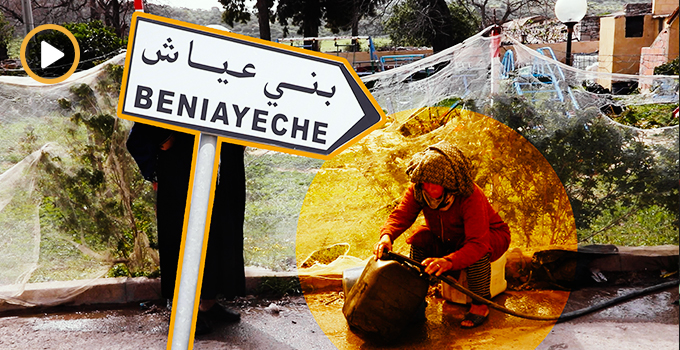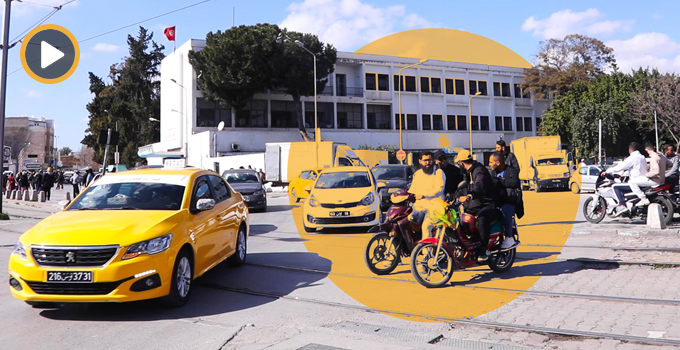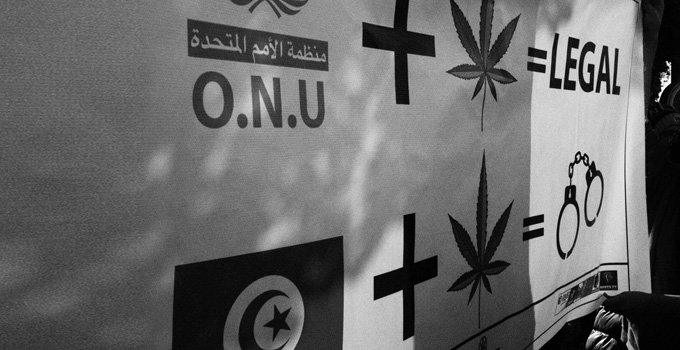
Until the elections of October 23 2011, Tunisia had benefited from unprecedented international sympathy. Having been the first country in the region to remove a dictatorship by the most peaceful and civilized means, Tunisia earned the respect and esteem of the world. It even received a long standing ovation from the U.S. Congress. Shortly after the end of the dictatorship, January 14, 2011, the country received hundreds of thousands of refugees fleeing war in neighboring Libya. Tunisia’s humane and proper management of this influx of refugees required great solidarity and reinforced the image of Tunisians as a peaceful, pluralistic, open and tolerant society. The whole world saw this freed country as a model for the democratization of the region and all dreams were then allowed.
Alas, the dream lasted only a few months and the accrued capital of sympathy will soon be spent. Elected with a mandate to write a new constitution by October 22, 2012, members of the Constituent Assembly, naively or intentionally, have endorsed the establishment of a new government dominated by the Islamist party Ennahdha in coalition with its two partners from secular left wing. This ended by a confiscation of power for an indefinite period and a beginning of a nightmare for the country.
Chaotic management of the country by incompetent politicians having only an ideological plan lacking both political and economic vision coupled with the absence of any viable project has worsened the situation in the country and aggravated social tensions. Furthermore, there has been flow of Islamist preachers, under the watchful eye of Ennahdha, who praised the Islamist party and called for the radicalization of the political arena, while glorifying hatred against secular segment of the population, women and opposition parties.
Ennahdha’s officials, while marginalizing their two partners, have repeatedly declared that their goal is to establish political Islam in Tunisia, in defiance of the country’s emergencies and of the distress of the impoverished segment of the population that still awaits an improvement of their daily life.
The repetitive abuse of religion by extremist groups has led to a widespread insecurity and of chaos in public affairs, tarnishing the country’s image. Nevertheless this strategy of chaos has benefited the Islamist party who used chaos to strengthen its grip on the state’s institutions and to maintain power without being accountable. Ennahdha dominates the government and the assembly despite having received only 37% of the vote.
Despite its total failure to carry out its obligation and lack of integrity, and the loss of credibility both inside and outside the country, the coalition dominated by the Islamist party Ennahdha prefers to continue to marginalize the country on the international level and to ignore that its mandate expired on October 22, 2012. The opposition’s parties did not take advantage of this deadline to play a more productive role and lost this opportunity to present a non-confidence motion, since the government has not delivered any positive achievement.
Two years after the revolution, Tunisia does not yet have any real program or specific roadmap to build sustainable democratic institutions and a viable economy, despite the country’s enormous potential and the preparedness of its professional elite.
In order to perpetuate its grip on power and because it is more than ever weakened, the Islamist party Ennahdha is now dangling before the opposition members, promising their integration soon in a future reshuffled government. Should they collaborate, it will only benefit Ennahdha and will be a huge discredit to those who would accept to be part of this illegitimate government dominated by Islamists.
This will also constitute a betrayal of the revolution that claimed democratic change, freedom and dignity. It will only lead to an endless illegitimacy of the authorities, while relegating the future elections to an indefinite date. Most importantly, it will spread the responsibility for the failure to a greater number of representatives and parties. Ennahdha will only get stronger and less tarnished while its potential allies of convenience, by accepting this proposal and by supporting this illegitimacy, will become marginalized or even eliminated from the political arena once the real democratic process resumes.
By Ali Guidara





in synchrony with the picture you painted and it’s not
palatable to digest.
it looks grim so far and the betrayal tunisians feel must be
painful.
a noble aspiration been hijacked by the utmost useless
creatures.
the problems doesn’t only rest with these pests but also
with the opposition whose only vision is a nostalgia to return
to a past that was as vile
.tunisians have got only themselves to blame; they are immature with
inabiilty to discriminate between a band of con artists and those that
may fulfil their dreams.
too gall able and mentally immature to choose what is right for their
own good.
that’s what they got as a gift from god goodly masquerading merchants.
we need to detox tunisia from all the current crop of politicians or
the road map will be more than rocky.
Ali Guidara as well as all the people who wants to say to Tunisians that you done a wrong choice when voting to Ennahdha, they try to draw a miserable atmosphere (politic,economy,security…), but in reality things on the field are improving (unemployment: minimum of 70 000 job created, economic : minimum growth of 3.5 % (FMI))..
surely there are some mistakes and sometimes serious mistakes due to lack of experience but Personnaly I prefer being governed by someone who is sincere with mistakes instead of someone who is criminal like Essebsi or hypocrite like Echeby.
ennahda is by definition an anti-democratic party although it claims that its pro-democracy.it’s just a facade but behind the scene they are implementing their strategey to restructure the tunisian society
through religious indoctrination or “wahabisation” which target all age groups taking advantage of the ignorance and poverty that are wreaking havoc in the country.